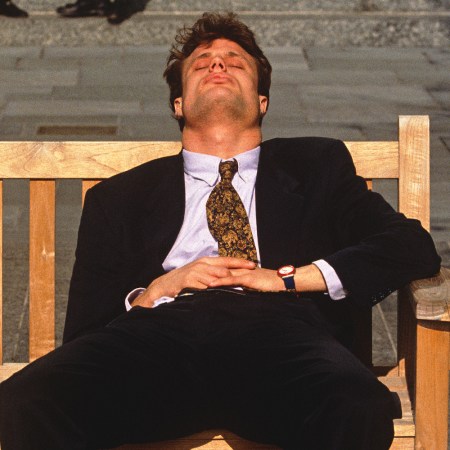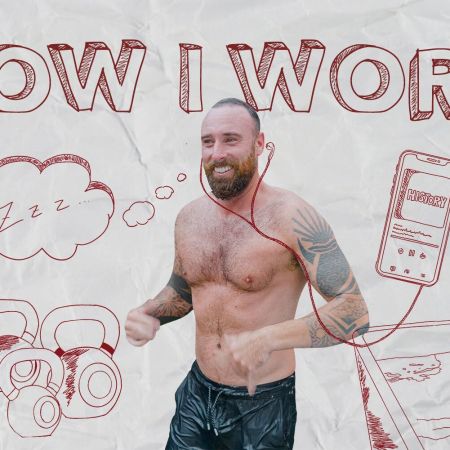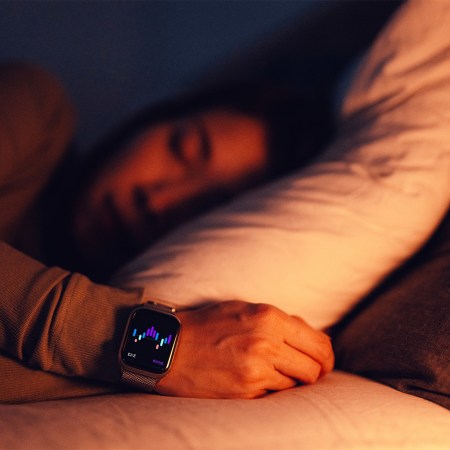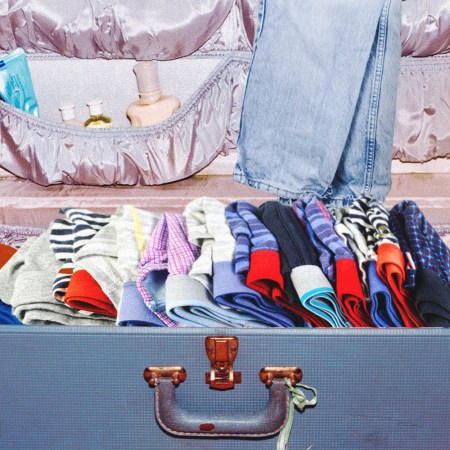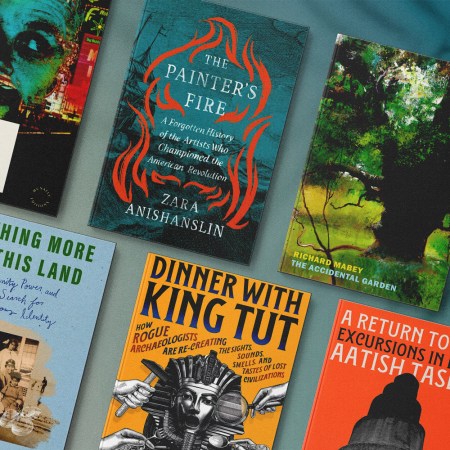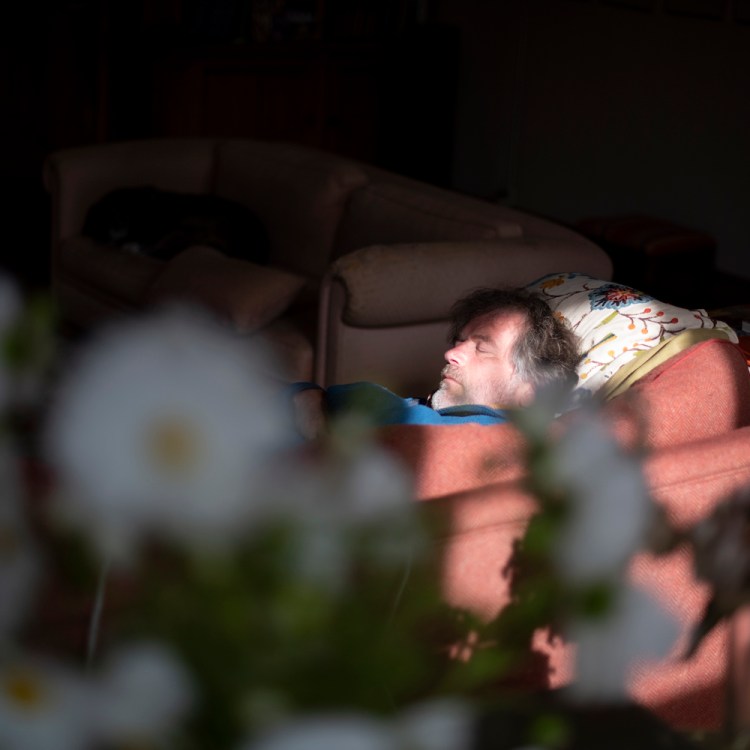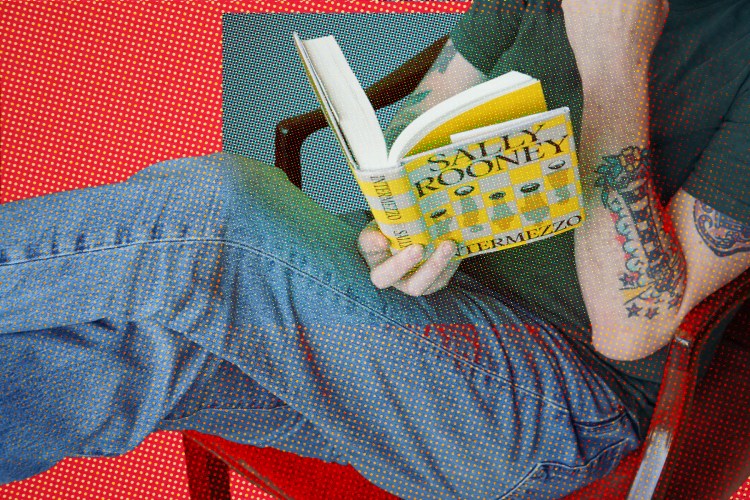I recently had the privilege of watching stand-up comedian Michael Meyers work out some new jokes, one of which hit particularly close to home. The Chicago-based performer said he never sleeps in his bed; he can only fall asleep on his couch. At my lowest points as a lifelong insomniac, the only way I could get myself to doze off was on the couch with the TV on, like a stubborn dad who’s “just resting his eyes.”
Having yet to discuss this affliction with another person (beyond my dad, who obviously inspired it), I caught up with Meyers after his set. The comedian suspects his preference for sleeping on the couch started as a kid, mostly because he hated going to bed. “Once you go to bed, the fun part of the day, which is the night, is over,” Meyers told me. “And the next thing you have to do is the day again. So when you go to bed, you’re giving up.”
Meyers and I exchanged memories of not being able to sleep growing up despite our parents’ best efforts. Warm milk, Sleepytime tea, children’s melatonin…you name it, we’ve tried it. While well-meaning on the part of our folks, all of this put an increased amount of pressure on falling and staying asleep — a pressure that’s followed us into adulthood and onto our couches.
It’s a Sleep Anxiety Thing
According to board-certified psychiatrist Dr. Mike McGrath, sleep anxiety has a lot to do with why it’s seemingly easier to fall asleep on the couch.
“From a psychological perspective, it’s easier for a person to fall asleep on a couch compared to a bed because the person isn’t necessarily thinking or worried about falling asleep,” explains McGrath, who is also the chief clinical officer of multiple rehab facilities. (People who struggle with insomnia are at an increased risk for developing substance abuse disorders.)
“A person may just be relaxing, watching TV on a couch, and not even thinking about sleep at all. Without this worry or pressure to fall asleep, they might find it easier to sleep.”
The Charge by InsideHook
A wellness newsletter to help you move better, think clearer and stay in the game longer. One email every Monday — we’re building habits, not chasing hacks.
Are Couch Sleeps Created Equal?
Given how essential sleep is for mental and physical health, it’s just as easy to assume that a full night of couch sleep would be better than a night of no sleep. However, ear, nose and throat specialist Dr. Donald Beasley warns that these sleep habits can have long-term consequences.
“The awkward angles can really mess with your neck and back,” says Beasley, the founder of Boise ENT. This doesn’t just cause discomfort and back problems; it can also lead to breathing issues that “disrupt your sleep and leave you feeling exhausted when you wake up. Over time, this really isn’t good for your health.”
What Should You Do About It?
Beasley, like many sleep experts, recommends cognitive behavioral therapy for insomnia (CBT-I) to treat the root cause of couch-snoozing: anxiety about not sleeping. While less well-known than medications like Ambien, studies show CBT-I is just as effective — without the risks of tolerance, sleep-driving or midnight pantry raids.
CBT-I works much like traditional cognitive behavioral therapy, which helps reframe unhelpful thoughts about yourself and the world. Here, the focus is sleep. For people like Meyers — and myself — that means learning not to spiral. Yes, chronic sleep deprivation can harm your health. But lying awake reciting those stats is hardly helpful.
If therapy feels like too much too soon, Beasley suggests starting with the basics of good sleep hygiene. “Stick to a regular sleep schedule and make sure your bedroom is conducive to sleep — quiet, dark and cool,” he says. “Also, put away those screens before you hit the hay.”
Sleep Well, Mike Meyers
For Meyers, screens may be the hard part. As a touring comedian, he often sleeps in a hotel bed, with the TV on. But for now, this diversion from his house couch has helped. “I have more daily anxiety about what I have to do at home,” he says, “but in a hotel, I can just relax.”
And that’s the point of CBT-I: to relax about sleep. It might sound redundant to natural sleepers, but it’s harder than it sounds. Even Beasley admits that someone can do the therapy, set the perfect sleep conditions — and still have rough nights. The key is not to panic. Just let it go, and try again.
“There are nights, though, when sleep just won’t come, no matter what you try,” he says. “On those rare evenings, sleeping on the couch might be better than not sleeping at all.”
Whether you’re looking to get into shape, or just get out of a funk, The Charge has got you covered. Sign up for our new wellness newsletter today.



